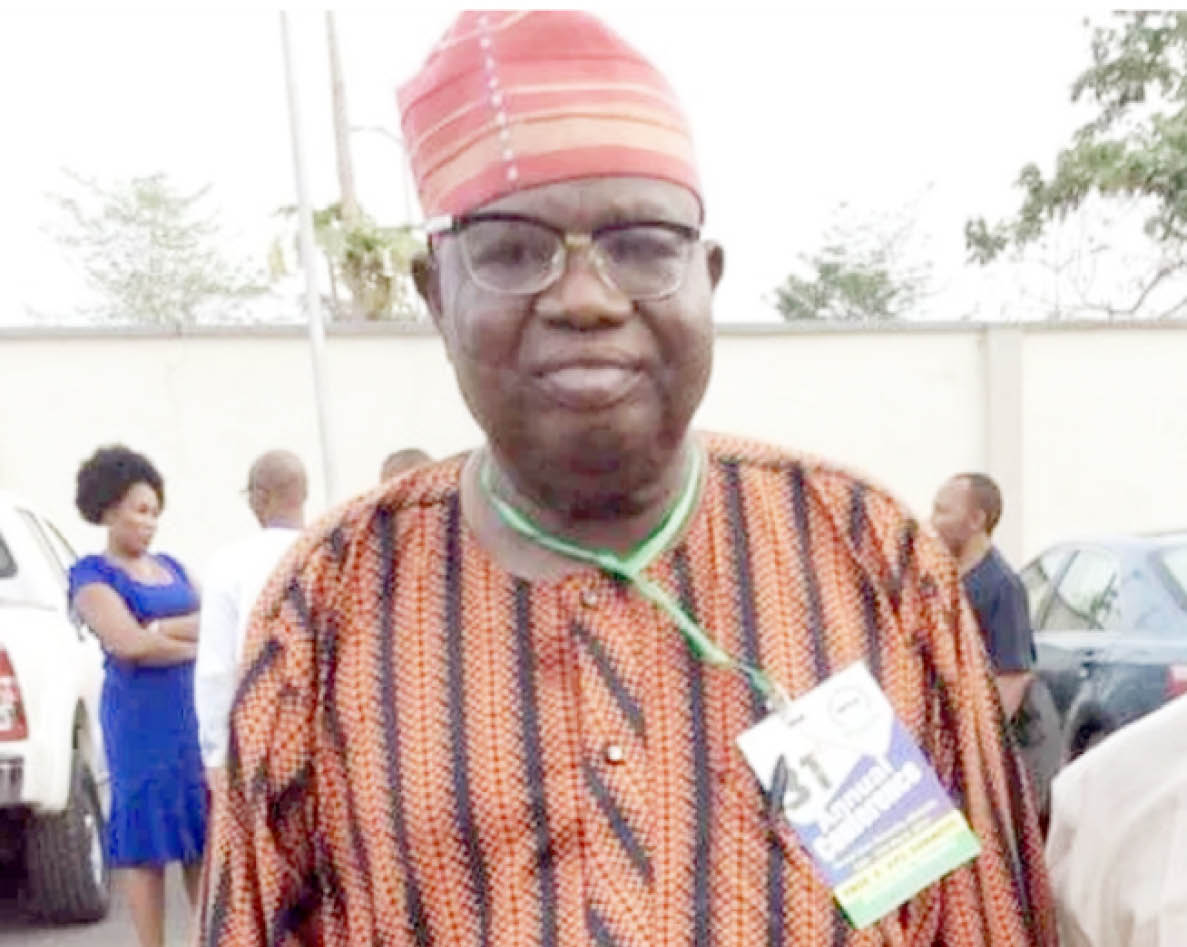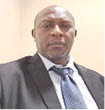Rauf Ayoade Dunmoye, 72, who recently retired from the Department of Political Science and International Studies at the Ahmadu Bello University (ABU), Zaria, is one of the prominent professors the university has produced. The number of scholars he has produced during his 44 years of service in ABU is what makes him outstanding. In recognition of his contribution to scholarship in Nigeria and abroad, two Festschrifts have been written in his honour by the Nigerian Defence Academy (NDA) and ABU which were presented to the public on Saturday, December 11, 2021. In this interview, he disclosed the secret behind his successes.
How did it start?
I was born on January 24, 1950. I was able to know because my father wrote it down. In 1957, I started primary school. We went to primary school in the morning and makarantar allo (Islamic school) in the evening. Most of the conventional schools in my town were missionary, but they did not convert any of us to Christianity. By 1958 or 1959 Ansar-ud-Deen started their schools.
I finished primary school in 1964. In Primary 7, you started buying forms for all secondary schools in the North. So, I bought form for Saint Paul’s College, Zaria, now Kufena College. I also bought form for Urogo Grammar School. Examination was usually conducted and these schools would pick the best. So, I was taken to Urogo Grammar School where I did my secondary school from 1964 to 1968.
- Nearly 2,000 journalists die of COVID-19 in 94 countries
- We can’t leave auto repair for any other job – Kaduna graduates
What happened thereafter?
Youthful exuberance led me to lead a demonstration against the principal. So, I was expelled when I was in Form 5. Fortunately, there was this examination for Federal Government Colleges (FGCs) where the best students were picked. I did the exam and I passed. I also registered for West African School Certificate (WASC) and passed. So, I went to FGC, Sokoto, between 1969 and 1970. That was the best period of my life. After the civil war, some Igbo students were brought to the college. We were pampered with the best teachers, free food and free transport fare. Most of our teachers were white and many of them had PhD.
When I finished in December, 1970, I waited for nine months because that was the convention as universities usually started lectures in October. As a result of this, I taught in Sokoto Teachers’ College under a scheme tagged “Temporary Upgraded Teacher”. After that, I decided I wanted to work more. However, initially I wanted to study business administration, but the admission came late, hence I decided to do something else. Therefore, I joined Radio Nigeria, Kaduna, as studio manager and announcer in 1971. I worked there for about four months. A controversial report I wrote led to my transfer to Katsina. In Katsina, I also enjoyed myself, as I became popular. I became well known to people like Mamman Shata as I had to record him most of the time.
At what time did you decide to further your education?
People thought I failed the Higher School Certificate (HSC) and that was why I was working. My mum started complaining. So, I applied to many universities, because that time there was no Joint Admissions and Matriculation Board (JAMB). I was given admission by three universities. But before then, Federal Radio of Nigeria, Lagos, had sighted my HSC with very good grades and they requested I should be transferred to Lagos. I said I was not going to Lagos. I decided to study history at ABU.
I was doing well with some of my classmates like Prof Abdullahi Mahadi, a former Vice Chancellor (VC) of ABU and the Gombe State University (GSU). One day, I decided I didn’t like Bachelor of Arts (BA) and I wanted to change to Bachelor of Science (BSc) in government. Therefore, I changed from BA History to BSc Social Sciences with specialisation in Government. Because they felt I was intelligent, the Faculty of Arts and Social Sciences (FASS) dean asked my whereabouts as they were not seeing me. I told them that I had changed my course. It was easy to know the students that were not around, because we were not many. They told me that I couldn’t change my course without application. So, I wrote and they approved, hence my change to government. This was in 1972.
I graduated in 1975 with Second Class (Upper) or 2.1 and I was posted to Sokoto. Then, looking for job was not difficult at all. Before we graduated, customs, Civil Service Commission (CSC), et cetera came to interview us. I was picked by the customs. However, the department wrote me that I had been appointed as graduate assistant. I didn’t apply. It was the period of the nationalisation of academics. This was when Professor Ishaya Audu was the VC. Most of us were sent abroad. This was why after my masters in 1979, I went to Canada and came back with a PhD in Political Economy through scholarships from the Kwara State Government and ABU.
How was life on campus like during your days as an undergraduate?
Beautiful! We had campus papers. One person who is a big man now was the editor of one of the papers; where we exposed many wrongdoings, especially by lecturers, particularly sexual harassment. The papers were very popular and they came out anonymous.
There was no problem of food. They would just give you a ticket. So, nobody was hungry. Our clothes, we had washmen who washed them for free. We were not many, so we knew one another. Life was pleasant.
Is there any basis for comparison between what was obtained academically during your days and now?
A lot of differences! Things are getting worse now. The way we were taught was quite different from what is obtained now. The quality of instruction and the lecturers are quite different. I do compare my students now and what was obtained before. I still have my notes of the 1971/72 academic session, but after every examination now, students will just abandon whatever note they have. This is why it is difficulty for a 200-level student to show you his 100-level notes. Students now will not attend lectures; they will not take notes; they will photocopy other people’s notes, et cetera. Students now are not serious with their studies.
On the other hand, with due respect, some of our colleagues, they don’t take their work seriously. Some lack passion for the job. I think lack of good pay is also a factor, but once one has passion for his job, it is all the motivation he needs.
What happened after your return from Canada with a PhD?
I was in Canada when I was promoted to Lecturer I. I came back to meet the radical scholarship environment I left which FASS was known for. There were radical scholars always on the left, while people like Talban Bauchi, late Ibrahim Tahir, were always on the right. Many students followed the trend by belonging to the left or right.
I decided to be a Marxian scholar; not a Marxist, because I read Political Economy. Therefore, I decided to be realistic by not being too hard on the establishment.
One of the interesting aspects of your scholarship is the number of Post-Graduate (PG) students you have supervised…?
Yes! I do harass students under my supervision to ensure that they produce good work. As a result of that they fear me and I like it, because it makes them to work hard to finish their work. I don’t do any other job apart from this work. When one is supervising, he is also learning. I know many things about journalism, because I have supervised four masters’ students that researched in that field.
I don’t keep students’ work. I write the date a student submits his work to allow me treat it in good time. This work is a trust and therefore it touches on one’s conscience.
Again, I treat assessments the same way I treat the works of my PG students. Other people did my assessment when I was growing up in the academics and so there is no basis to delay anyone’s assessment.
A lecturer cannot develop if he doesn’t supervise, and he will not have a legacy. When students realised that I didn’t hold others unnecessarily, they trooped to me and I can’t say no, because this is my job.
One of my students has been a VC and many others are professors all over the country. I don’t think there is any university, especially in the North West and North East, where I don’t have students.
I have supervised 47 PhD scholars who are now working in different universities and other institutions across Nigeria and abroad. Many of them are now professors. For MSc, I have supervised about 100 students. These are those who have successfully completed their research. The number of students I have supervised at PG level will be running into hundreds when internal and external assessments are considered.
How is life in retirement?
I think I have paid my dues. We allow the younger ones to also contribute their quota. I am presently working in Federal University, Gusau, on contract. I went there because they wanted me to assist in developing their PG programmes. However, I want to follow the philosophy of my father. When my father became old and he was still going to the farm, we advised him to stop. He told me that if he stopped he would die, because it was going to the farm that kept him fit being the only thing he did all his life.
I am happy the way I am leaving ABU. We are all friends and brothers in the department, but we also have our disagreements; which is good, because it is political science. I don’t think there is any department in this university that enjoys the kind of friendship that we enjoy. I want my colleagues to keep the flag flying.

 Join Daily Trust WhatsApp Community For Quick Access To News and Happenings Around You.
Join Daily Trust WhatsApp Community For Quick Access To News and Happenings Around You.


